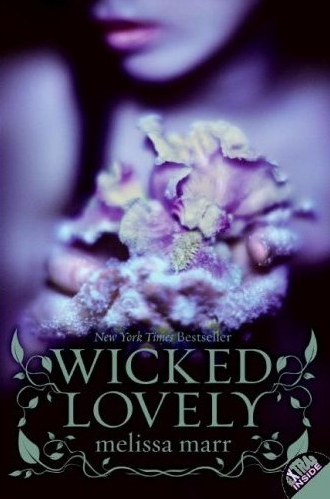 Author: Melissa Marr
Author: Melissa MarrPublisher: Harper Collins (April 9, 2008)
Language: English
ISBN-10: 0061214671
ISBN-13: 978-0061214677
My Rating: ♦ ♦ ♦ ♦ ♦
Synopsis:
The clash of ancient rules and modern expectations swirl together in this cool, urban 21st century faery tale. Rule #3: Don't stare at invisible faeries. Aislinn has always seen faeries. Powerful and dangerous, they walk hidden in the mortal world, and would blind her if they knew of her Sight. Rule #2: Don't speak to invisible faeries. Now faeries are stalking her. One of them, Keenan, who is equal parts terrifying and alluring, is trying to talk to her, asking questions Aislinn is afraid to answer. Rule #1: Don't ever attract their attention. But it's too late. Keenan is the Summer King and has sought his queen for nine centuries. Without her, summer itself will perish. He is determined that Aislinn will become the Summer Queen at any cost! Suddenly none of the rules that have kept Aislinn safe are working any more, and everything is on the line: her freedom; her best friend, Seth; her life; everything.
High school senior Aislinn tries to go through life as normally as possible, but her life is anything but normal. She can see and hear the dreadful fey that live invisibly alongside oblivious mortals. Aislinn lives in constant fear of being exposed to the fey. Her sighted Gram has instilled rules to never stare at faeries or speak to them and avoid them at all costs because they’ve been known to blind mortals they learn are sighted. Aislinn knows them to be fierce and brutal, so she has no problem following these rules.
Encased in a city of steel she feels somewhat safe since faeries are allergic to hard metals, but something has changed. Various fey have been following her, loitering outside, whispering about her being “the one”. Two of the stalkers especially rattle her. They seem near-impervious to steel, which means they’re likely royalty. One looks like a golden god whose hair resembles strands of sharp copper, and the other, a near-frozen faerie looks so close to death, and is accompanied by a wolf.
Keenan, the Summer King, has spent centuries looking for his Summer Queen to release the bond his mother Beira, the Winter Queen, has placed on his powers. He has seduced mortal after mortal, some choosing to be his immortal Summer Girls, who gain their sustenance from him alone, and others choosing to risk it all for his love, to be declared the Summer Queen. If a girl fails Beira’s test, she becomes her chilled slave, with the sole aim to warn mortals of Keenan’s duplicity. And the frigid Winter Girl of the hour, Donia, still loves Keenan, in spite of the fact the he duped her.
Keenan believes Aislinn is his Summer Queen, that she will finally be the one to pass the test. He just has to convince her of that, but when he’s in his human glamour, she wants nothing to do with him. She loves this mortal, Seth, for one thing, and she won’t stop walking away from him. What will Aislinn choose once he’s able to woo her? He’s certain he can convince her to submit to the test, but the skittish girl he meets finds strength in herself and comes up with her own plan.
The lyrical style was overall nice and easy to read but the characters in Wicked Lovely could have been more fully developed. Aislinn needs more fullness aside from her sight, her relationship with Gram and her crush on Seth. Aislinn is not as flat as other reviewers on Amazon have pegged her. She transforms in the book, going from weak to strong, and that’s the best you can ask of a character.
I especially enjoyed the descriptions of the various types of fey, but the relationships all around only scratched the surface of real love. If this were a stand alone book, I’d feel robbed because the work falls somewhat short of its concept. I know there’s more to be discovered in the series, so I can cut Melissa Marr some slack. I’ve already read Ink Exchange, which I liked better. It delves into more of the faerie court stuff and very little in the real world.
It’s an interesting work anyway. Check it out.
~ Signing off and sending out cyber hugs.












